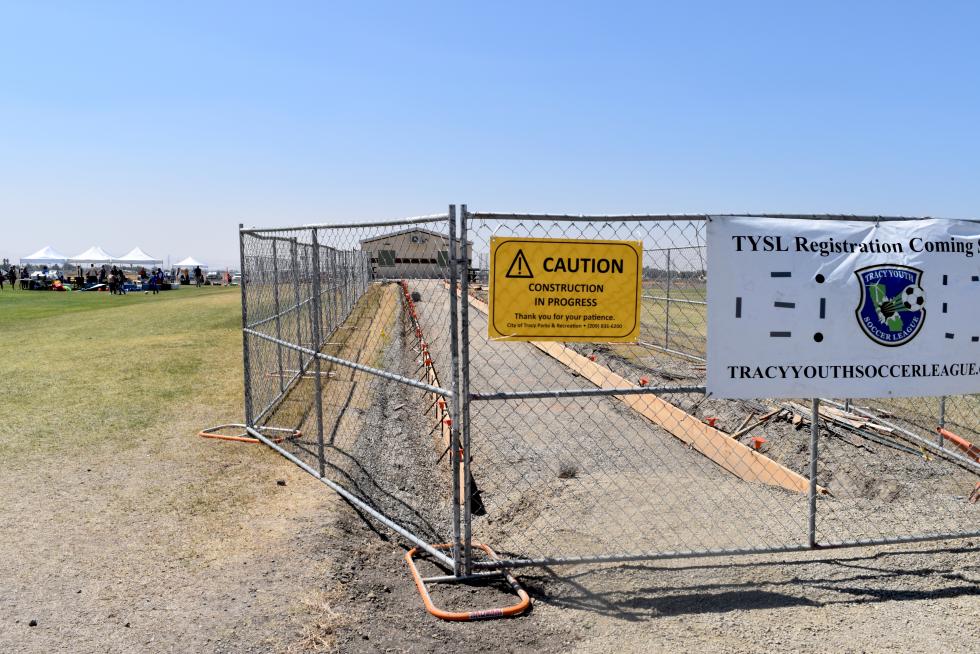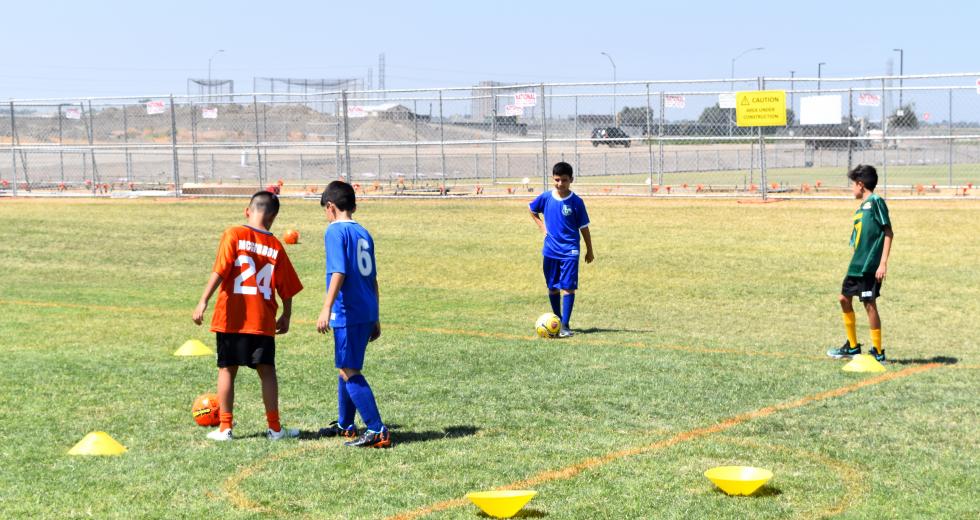Over the last few decades, Tracy has experienced a massive population boom.
What was once a small agricultural city in San Joaquin county, with just 18,428 people in the 1980 U.S. census, became a veritable Bay Area bedroom community, boasting more than 90,000 residents today. Families who couldn’t afford houses closer to Oakland or San Francisco bought just east of the Altamont Pass, accepting what might be one of the worst commutes to the Bay Area in exchange for tranquil, suburban weekends.
But as all of the growth and residential development happened, the city lagged in other areas, says Tracy Mayor Robert Rickman, who was born and raised there.
“As the city expanded earlier, the parks and recreational activities didn’t expand with it,” Rickman says. “So that is one thing that’s always been my main goal, is to get Tracy back upfront with amenities and make us a destination place.”
In recent years, Rickman and others have led an ambitious effort to add a family destination to Tracy — the Legacy Fields Sports Complex just north of downtown. Eight soccer and nine baseball fields are already operational at the site and there’s more to come, with about half the land at the complex still to be developed. Concepts for this remaining land haven’t been finalized, city leaders say. But the second phase of construction is currently underway and includes adding bathrooms, light fixtures and other amenities needed to attract weekend tournaments.
City leaders are hopeful the 166-acre Legacy Fields complex will be the largest of its kind in the San Joaquin region, providing an ever-scarce commodity — youth sports’ fields — while helping catalyze nearby development and tourism.
Building Better Fields
Mariano Desena knows what was around before Legacy Fields. Desena is a Tracy resident and has an 11-year-old son who’s been playing soccer for six or seven years and now plays competitively. Playing in high school is more or less a foregone conclusion for the boy and with luck, Desena notes, his son will play beyond that.
But before Legacy Fields opened last year, Desena’s son faced tough conditions following his dream locally. “A lot of the other fields aren’t up in shape, with the grass and all that,” Desena says, while attending an opening day event for the Tracy Youth Soccer League season at the complex on Aug. 18. “This is a lot more even; less injuries for the kids, too.”
The Legacy Fields Sports Complex is being built in phases as
funding becomes available. Photo Graham Womack

Desena first heard about plans for Legacy Field about a decade ago, he says. In fact, Mayor Rickman says, plans have been on the books for more than 20 years.
But consensus among Tracy City Council for building the complex was slow to develop and necessary funding a challenge to commit. Some of the complex is being funded by a half-cent sales tax, Measure B, that voters approved in 2016. Rickman notes the city doesn’t have a completion date for the complex, which is why it’s being built out in several phases.
“It’s when funding’s available,” says Rickman, who noted that Tracy has several funding options for the fields, including its general fund and use fees on the fields collected by the city.
Rickman, first elected to council in 2010, says he ran for mayor in 2016 in part on a platform of providing more amenities for children. “We’ve been promising the community that we were going to do this for 20 years,” he says. “Let’s stop our talk and take some action — and that’s what we did.
The final price tag for the fully-built complex is uncertain, says Brian MacDonald, parks and recreation director for the City of Tracy. That’s because beyond the 72 acres that have been developed so far, much of the rest of the land remains in concept.
“We haven’t designed anything, we don’t have construction plans, so it’s really hard to tell you how much it’s going to cost to finish all that,” MacDonald says.
But MacDonald notes that the first phase has cost roughly $35 million. Asked if the total complex would thus cost around $80 million — by roughly factoring dollars per acre — MacDonald says, “Oh, at least. That’s if we built in today’s dollars.”
City leaders are optimistic, though, on what a fully-built complex can do for Tracy.
Long-Term Potential
Youth sports complexes can be a boon for local tourism, hosting weekend tournaments that attract out-of-the-area families who stay in nearby hotels and eat at area restaurants.
To this end, Shelley Burcham, Tracy’s economic development manager, says La Quinta and Marriott Town Suites have committed to sites not far from Legacy Fields. She adds that Hilton Home2 recently pulled a permit to build roughly two miles from the complex. “I think we will see a lot of benefit, economic benefit by Legacy Fields as it comes to completion and fruition,” Burcham says.
Chad Wood, board president for the Tracy Chamber of Commerce agrees. “I think once the fields are done,” he says, “we’re going to have a mechanism in which people are going to come to our town, they’re going to enjoy what we have to offer and while they’re here, they’re probably going to use our facilities, go to our restaurants, stay in our hotels.”
The City has high hopes on how popular the complex will be for games and tournaments. “We anticipate that facility being booked every weekend,” MacDonald says.
Not everyone’s onboard with the weekend tournament business model, though, such as Karl Dewazien, who runs a Fresno-based business training coaches and was at the August opening day festivities at the complex.
“Unfortunately, I’m one of those people that’s against tournaments because a lot of the kids, especially the ones that you consider competitive players, all they do is go to tournaments and they do more traveling than they do playing,” Dewazien says.
Then again, the complex might mean fewer long car rides for Tracy kids already hooked into the weekend tournament world.
Other details remain to be sorted out with the complex. D.J., an 11-year-old TYSL midfielder says he enjoyed playing his first season last year at Legacy Fields. But that might have had more to do with the fact that he was on a winning team and scored a goal, he says, almost every game. The conditions at the field itself weren’t his favorite. “When I was playing here and practicing here, there’s a lot of dust and sand,” D.J. says.
That’s due, in part, to the ongoing construction, with a cloud of dust swirling visibly just beyond the playing fields during the opening day festivities.
Desena says practice field availability is also limited at the complex and that he’d like to see the city provide other facilities, though he’s happy overall. “This is great,” Desena says. “I wish the city would put together an indoor facility. That’d be great. But is good for the kids, larger fields and everything. TYSL keeps growing so it works out.”



